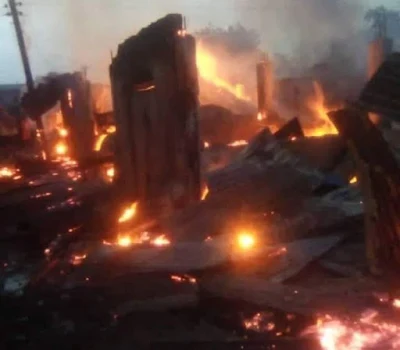Nigeria produced a total of 236,229,281 barrels of crude oil in the first half of 2024, according to The Punch.
The nation produced 44.2 million barrels of petroleum in January and 38.3 million barrels in February, According to data obtained from the Nigerian Upstream Petroleum Regulatory Commission.
Also, 38.1 million barrels were produced in March, and the monthly production for April was 38.4 million.
38.8 million barrels were pumped in May, and in June, 38.3 million barrels were attained.
In the same period in 2023, the country’s total oil output from January to June was 219.5 million barrels, 16.73 million lower than what was recorded in 2024.
Meanwhile, the nation produced 302.42 million barrels of crude oil in the first half of 2020, which is 66 million barrels more than it did in the same time of this year.
This shows that the country’s oil output has been erratic over time, dropping more overtime.
Data from NUPRC showed that the country produced an average of 1.43 million barrels of crude oil per day in the first month of the year, being the highest average daily crude production within the six months.
The daily oil production fell to 1.32 million barrels in February and then to 1.23 million barrels in March.
The government’s efforts to prevent the numbers from falling further may have paid off, as the daily production increased slightly to 1.28 million barrels per day in April.
However, the figure fell again to 1.25mbpd in May, at a time the Group Chief Executive Officer of the Nigerian National Petroleum Company Limited, Mele Kyari, said the country’s daily oil production was nearing 1.7 million barrels.
The production increased slightly to 1.28 million barrels per day in June, providing the Nigerian government—whose economy is mostly dependent on crude oil—hope for a comeback.
Recently, Kyari lamented the negative impacts of oil theft and vandalism on the nation’s economy, saying the act discouraged investments in the oil and gas sector.
“How do you increase oil production? Remove the security challenge we have in our onshore assets. As we all know, the security challenge is real. It is not just about theft; it is about the availability of the infrastructure to deliver the volume to the market.
“No one will put money into oil production when he knows the production will not get to the market. In the last two years, we removed over 5,800 illegal connections from our pipelines. We took down over 6,000 illegal refineries—cooking pots or whatever they were. You simply cannot get people to put money until you solve that problem,” Kyari stated









